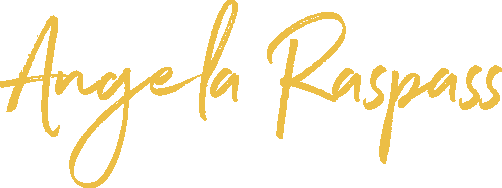I have always seen myself as a person who sets and achieves positive goals in life. Someone motivated by achievement. An enthusiastic action taker.
If you look back on my life, talk to my friends and family, you’d likely tend to agree. I seem to have ticked a lot of the life and career/business boxes. I’ve also been a somewhat late starter in the personal development world, really discovering it when I attained sobriety in 2006 (one of my biggest and most important goal achievements ever). I’ve energetically embraced my teleological nature and have been devouring literature and learning opportunities.
However (there’s always a however, isn’t there!), I have recently begun to realise that I’ve not always developed and pursued the goals that are altogether right for me and there have been some grief to process within that realisation.
Some may call this a sort of “mid-life crisis”, given my 53 years on the planet. There may be muffled comments about “empty nest syndrome” with my son now living interstate and my daughter about to cross the threshold from teenagerhood to young adulthood.
There could be an inkling of truth in both of these hypotheses. But I tend to lean more towards the researcher and writer Brene Brown who says:
“Midlife is when the universe gently places her hands upon your shoulders, pulls you close, and whispers in your ear – I’m not screwing round anymore – it’s time. Use the gifts you were given”
I believe midlife is the perfect opportunity, as some of our more onerous responsibilities fade a little into the background, for us to understand ourselves more and to set the goals for our next chapter that are positive, personal and purposeful. Having an appreciation of the brilliant work of positive psychology greats such as Locke, Banura, Schunk, Dweck and more is so valuable. The insights gained from their work can help us to set the goals that are truly right for us and significantly increase the odds of our achieving them.
Self-determination theory
To begin with, it’s important to know that at the heart of any goal lies the truths of the Self-Determination theory. Our needs for growth, autonomy and connection drive our behaviour, and thus the goals we set for ourselves. Loss of any part of this trifecta of meaning thwarts our natural growth and wellness. Assuming we are in life circumstances that allow us the freedom of self-determination, these 3 components of the theory will play out differently for everyone, depending on what we value.
Competence: people need to gain mastery and control of their own lives and environment.
Autonomy: people need to feel in control of their own lives, behaviours and goals. This is about choice.
Relationships: people need to feel a sense of belonging and connection with other people. To care for and to be cared for.
I’ve been on a sabbatical from my own work for over 4 months now.
I made the decision to take this time out so I had the space for a deliberate re-evaluation and the opportunity to reset my goals for my own next chapter. To consciously choose and craft my next steps with these components in mind as I believe purpose, well-being and community are absolutely essential for every one of us, and even more so as we age.
And so, during this time out, I’ve created and explored where some of my core values and real life might be out of alignment when it comes to my overall life goals and I’ve shared my steps below, through a positive psychology lens. I hope its helpful.
Create a goal wheel
I asked myself, where are the opportunities for new goals to be set and for different actions to be taken? How could I feel more content and fulfilled with the areas of life I has pinpointed as most important to me?
Knowing my values and strengths was a vital part of this exercise. I also needed to consider the stage of life, the season, I am in. Some of my priorities have changed, and my goals need to reflect this now.

I also examined some of my beliefs that have sabotaged my goals and wellbeing in the past. I’ve allowed myself to believe that there is a “right way to do things”, whether that be in business, diet, exercise or relationships and that the answer is “out there” because I can’t possibly know, or I’d have it all figured out by now, wouldn’t I!??
Like many people, I can get caught in the stories of success that proliferate social media and find myself feeling less than, as though I should be somewhere different in my business and life. When I fall into this comparison trap, I can find myself adopting other people’s success markers and setting goals that are not grounded in my own reality.
This misbelief has led me to stray far from my own values, strengths and needs. It was one of the reasons why I stayed with my “good” business (a marketing agency with staff and small business clients) that was draining and unfulfilling for far longer than I should have.
Whilst I am a big believer in asking for input when you hit a wall, in the power of complementary skills, and that there is no shame in admitting that you do need help, there is a continuum to consider. There’s no need to go it fully alone and there’s also no need to fully capitulate to other peoples, or society’s, opinions, and conditioning.
Our goals need to have their roots in our true intrinsic desires and those desires should reflect our own values and strengths and be developed with an appreciation of their ability to contribute to our wellbeing and happiness if they are crafted well.
My core values are: (from https://www.viacharacter.org/)
- Love of learning
- Hope
- Social Intelligence
- Love
- Vitality
- Kindness
And my strengths are:
- Growth
- Esteem Builder
- Connector
- Emotional Awareness
- Optimism
- Self-awareness
- Gratitude
With these in mind, I crafted 3 new goals in the areas of Physical Heath, Mental/Emotional Wellbeing and Career/Business Impact. During this exercise I was forced to confront something uncomfortable about myself – my own mindset tends to slip into “fixed” mode if I am not consciously aware of it, and this can lead me to only setting goals in areas that I feel I have a great chance of succeeding in. This new-found awareness is priceless and I hope it will provide me with the opportunity to consciously step out of my comfort zones more often.
I also relied on two core theories I’ve learned during my Positive Psychology Diploma studies to strengthen my goals – the approach perspective and the goal framework.
Approach V Avoidance Goals
Approach goals are pursued because they are pleasurable for you and/or because they help others. In contrast, avoid goals are set because to fail in achieving the goal would mean a loss of self-esteem and/or to avoid unpleasant repercussions.
When I frame my goals with an Approach flavour, I am far more likely to feel inspired and purposeful, and that sense of elevation enhances my ability to overcome obstacles, and you do have the opportunity to reframe most goals with an approach focus.

This is when the Biswas-Diener & Dean concept of Goal Framework dovetails into the exercise and intersects with the Self Determination Theory.
It emphasises the need for our goals to have a positive orientation, and generative, intimate content that comes from an intrinsically motivated place for them to contribute to our happiness and wellbeing.
Given these two ideas, I created a set of questions to ask myself when I looked at my core goals.
- Is this goal framed with a positive approach?
- Is it encompassing a feeling of contribution and intimacy, closeness to my values and people?
- Is this truly MY goal, not influenced externally?
- How much control over the outcome do I have?
- How much can I use my skills (or develop specific new ones)?
- Does it allow me to connect with others?
Then I added in:
- How does this goal feel in my body? Am I excited? Inspired? Daunted?
- What support do I have or need to achieve this?
- Do any of the goals conflict with one another?
- Do they reflect a growth mindset or a fixed mindset?
This is what happened…
My goal for physical wellbeing
My original goal was to “lose 10kgs by Christmas”.
Needless to say, I can see how ineffective this is in terms of positive goal setting!
An avoid approach, not aligned with any of my values or strengths and rather isolating, it also impeded by a fixed belief, that losing weight at my age is really hard, and that it would be difficult, restrictive and doomed to failure.
With that iceberg of beliefs sitting under the waterline, what were my chances of success?
My new goal
“Building my vitality with fresh, nutritious food, movement and meditation so my health span can match my age span”.
This is a within-person approach orientation, a great start. It’s generative and intrinsically motivating – it feels purposeful and inviting to me and is not relying on external influences and misbeliefs (ie: how my body “should” look). It also allows me to lean into my love of learning by finding out all about nutrition. Something I’ve never really taken the time to explore past the basics.
It may lack a time frame (from the SMART goal setting school of thought) but that’s ok, as I want this to be an enduring goal and as my sub-goal details to assist me included:
- The 80:20 rule – eat well 80% of the time, eat indulgently 20% of the time
- Walking with friends each week (have locked in 3 different friends each week, and booked yoga classes)
- Gain insight and support from a Naturopath who is taking me through a Metabolic Reset program so I can understand what foods my body loves – we connect regularly and that’s really helpful and enjoyable for me
It’s early days but I am feeling VERY different about this goal!
Mental/Emotional Health
I confess I did not even have a goal in this area of my life, even though I have a sincere appreciation for its importance.
I see myself as pretty self-reliant, with books and podcasts as my key companions in my quest for emotional equilibrium as well as this studying for my Diploma (which aligns nicely with my Love of Learning and Self-Awareness).
However, I have a family member with a mental health challenge that has had me in a hypervigilant mode for some time and, teetering on the edge of depression, I accepted, with the encouragement of my husband, that I needed more support.
Thus, my new goal was to:
“Access a safe and supportive space and a qualified supporter to help me effectively process my emotions so I can feel positive and expansive again”.
This goal has a positive, intimate, intrinsic orientation and although I do not have control over the final outcome, I have connected with a fabulous narrative psychologist and I look forward to each of our sessions that are validating, challenging and transformational.
Ten weeks in, I am feeling uplifted, hopeful and excited for my own next chapter, as I am learning so much about myself. I am also able to bring my own skills into our interactions, referencing things I have learned and asking for more help in seeing how I can better understand myself. She has also helped me to unpack my recent ADHD diagnosis, see how this has affected so many of my decisions, behaviours and emotions in the past and make plans for the strategies that will help me in the future.
Career/Business Impact
This brings me to the final goal I’m looking at for now.
My sabbatical from work has given me the space to consider how I would like to recalibrate my business. My old goals needed an upgrade, and although they had heart, in terms of genuinely wanting to support women in business to achieve their own goals, I was stuck in the paradigm of only providing business mentoring, feeling that was the only way I could make a living. Such an externally dictated, outdated misbelief.
That had to change when I realised that I am most interested in HUMAN potential rather than just BUSINESS potential (though if the human wants to start or refine a business, I’m all in!)
New Goal
“To expand the impact of Your Next Chapter as a catalyst for women to own their worth and reach for their potential by sharing the knowledge and experiences of myself and others primarily through a core group program, a live event, the podcast and an online community in 2022”.
It’s positive, in service of others whilst making the most of my skills, is aligned with my values, leverages my strengths, demands I dwell in the growth mindset space and move gradually towards mastery as I share what I have learned and continue to learn, it allows me complete autonomy over how I shape my services and welcome connection and contribution with and from others.
I’m excited and inspired! It has a strong outline and I’ll now work on colouring in the details for the remainder of my break.
Positive Goal Setting is a game changer – try it out today – I’d love to hear about what you craft.
And of course, if you’d like some help with this, you can always contact me here.










